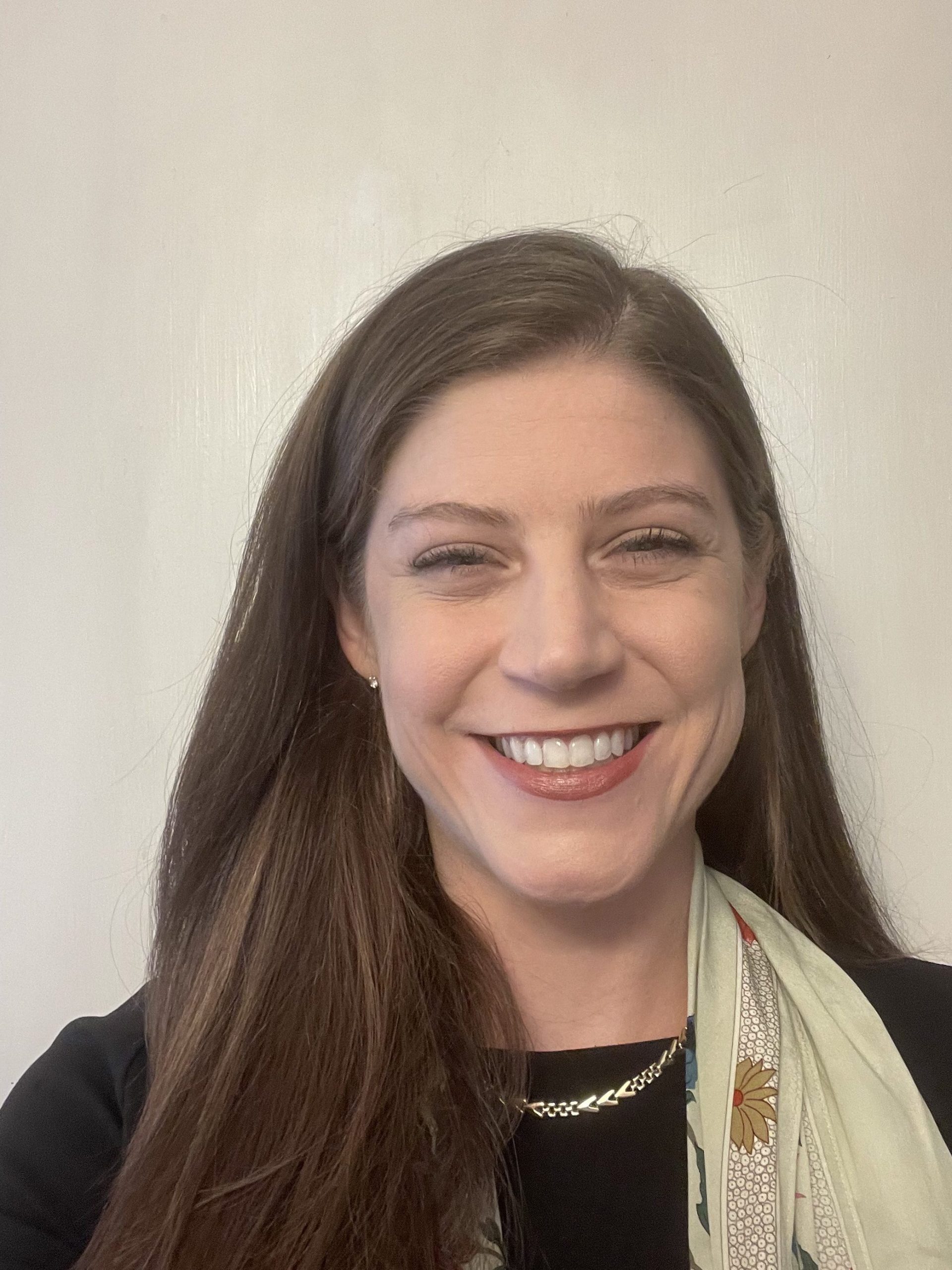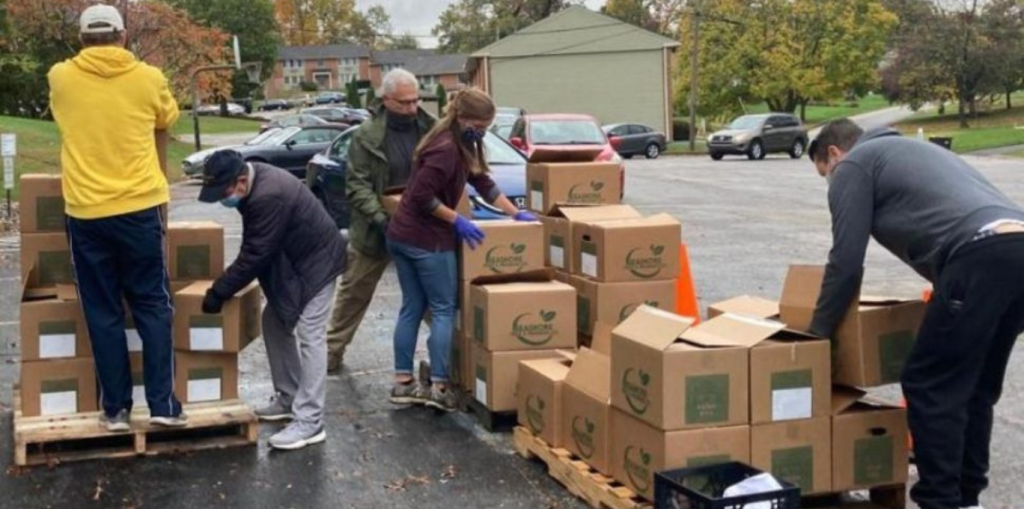Travillian Next’s interviews are deep dives into successful bank leaders, presented as educational opportunities for industry veterans and novices alike. The runup to Thanksgiving has opened a window to put a seasonal twist on this editorial mainstay. Rather than highlight a bank president, the following profile focuses on a food bank president. And although her area of expertise is outside the financial services industry per se, her insights and observations are valuable to the wide array of bankers and their differing experiences.
Her willingness to share her thoughts makes us very thankful for her openness.
Purposeful Professional Drive

Shannon Isaacs embodies what it means to be a professional driven by purpose. As the executive director of the Montco Anti-Hunger Network (MAHN) in Norristown, Pa., her leadership reflects an exceptional combination of strategic thinking, collaboration, and data-driven decision-making. Isaacs credits much of her success to her ability to adapt principles from the business world to the nonprofit sector. “Economics and labor relations taught me how to build strong organizations that create lasting impact,” she explains.
Her professionalism is evident in how she engages with diverse stakeholders, from nonprofit leaders to policymakers and donors. Isaacs believes partnerships are key to solving systemic issues like food insecurity. “I see MAHN as a backbone organization—a driver of collaboration across the food space,” she says. This collaborative model has enabled MAHN to unite 73 food pantries, food banks, and meal providers under a common mission: to end hunger in Montgomery County, Pa.
Among local financial professionals, Isaacs sees an important role in advancing this mission. “Bankers bring skills we desperately need,” she notes. “From financial analysis to strategic planning, their expertise can help nonprofits operate more effectively.”
Data-Driven Solutions for Complex Challenges
Isaacs’ leadership style is rooted in data and problem-solving. Under her direction, MAHN has launched nine innovative prototype projects aimed at creating scalable, equitable solutions to hunger. These initiatives range from addressing cultural food needs to reshaping food distribution systems. “We’re ten months into these projects, and some are already showing transformative potential,” she says.
Her focus on measurable outcomes is something banking professionals can relate to. Isaacs emphasizes the importance of using data to make informed decisions—a practice common in the financial world. “Policy advocacy, for instance, requires hard numbers to influence legislation,” she explains. MAHN provides critical data to lawmakers at the local, state, and federal levels to ensure policies align with community needs.
Isaacs also urges banks to consider how market forces like inflation and housing costs drive food insecurity. “Bankers understand how these pressures impact everyday consumers,” she notes. “That perspective is invaluable for addressing the root causes of hunger.”
Servant Leadership: Empowering Teams and Communities

Isaacs’ leadership philosophy is deeply rooted in servant leadership. “It’s about building trust, empowering your team, and fostering a culture of excellence,” she explains. Her approach has created an environment where team members thrive, with many advancing to executive roles under her mentorship. “I focus on equipping people for their entire careers, not just the job in front of them,” she says.
Her team-oriented mindset is evidenced by her observations on sports. “I think nonprofits are more like a football team than a basketball team,” she observes. “In basketball, you can have just one superstar, and he or she makes a transformative difference. But in football, you may have an extraordinary quarterback. But if the offensive line doesn’t do its part, the whole team is not going to get where they need to go.
“So I think that coming from a background where you really need the whole team, and you really have to support the brilliance of every person, has driven my leadership style to be more focused on listening and inclusiveness,” she reflects.
This perspective is something that skilled bankers learn over time, given that their roles often depend on collaboration across departments to achieve shared goals.
Isaacs is also a strong advocate for inclusivity, a principle shaped by her global experiences. “Living and working around the world taught me the value of diverse perspectives,” she says. “Listening to others often results in the most brilliant ideas.”
How Banking Professionals Can Help
Isaacs sees tremendous opportunity for banking professionals to make a difference in the fight against hunger. “Board service is a perfect match,” she says. Bankers’ expertise in financial strategy and analysis makes them invaluable assets to nonprofit boards. “Helping organizations like ours think through banking needs or navigate financial statements can have a huge impact,” she adds.
Beyond governance, Isaacs highlights the importance of financial support. “Donations are essential. There’s a huge gap between the rising demand for food and the resources available to meet it,” she explains. Food drives and volunteering also make a tangible difference, but Isaacs stresses the importance of addressing systemic issues. “Food insecurity affects education, healthcare, and overall societal well-being,” she notes. “By tackling hunger, we create ripple effects that benefit entire communities.”

Facing Challenges with Hope
Despite a staggering 60 percent increase in food pantry visits in 2023 and continued growth in 2024, Isaacs remains optimistic. “What gives me hope is seeing so many people willing to help,” she says. She points to the bipartisan nature of hunger relief as a unique advantage. “Hunger is a solvable issue, but it requires collective effort,” she emphasizes.
Isaacs encourages banking professionals to see food insecurity as a local issue that impacts their colleagues, clients, and communities. “It’s not an ‘over there’ problem,” she says. “It’s happening in teller lines, small business loan offices, and college campuses.”
Her message is clear: solving hunger strengthens communities, and professionals from all sectors—including banking—have a role to play.
Building a Better Future
Shannon Isaacs’ professionalism, strategic vision, and servant leadership set a powerful example for anyone looking to make a difference. For banking professionals, her work highlights a unique opportunity to apply their expertise to a cause that directly benefits their communities.
“Hunger isn’t just a humanitarian issue—it’s an economic one,” Isaacs concludes. “When people have access to enough food, it opens doors to education, employment, and stability. Together, we can solve this.”
